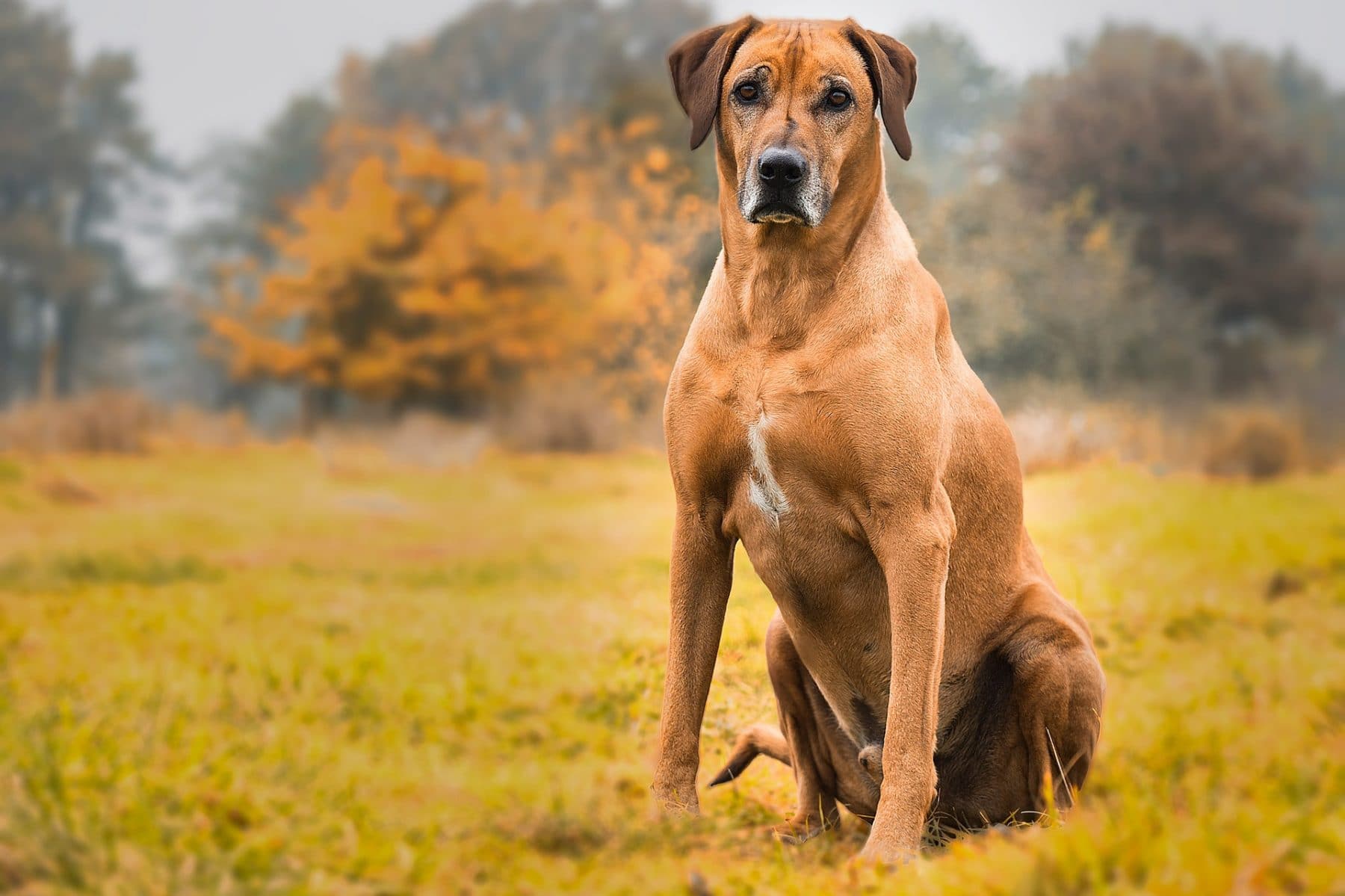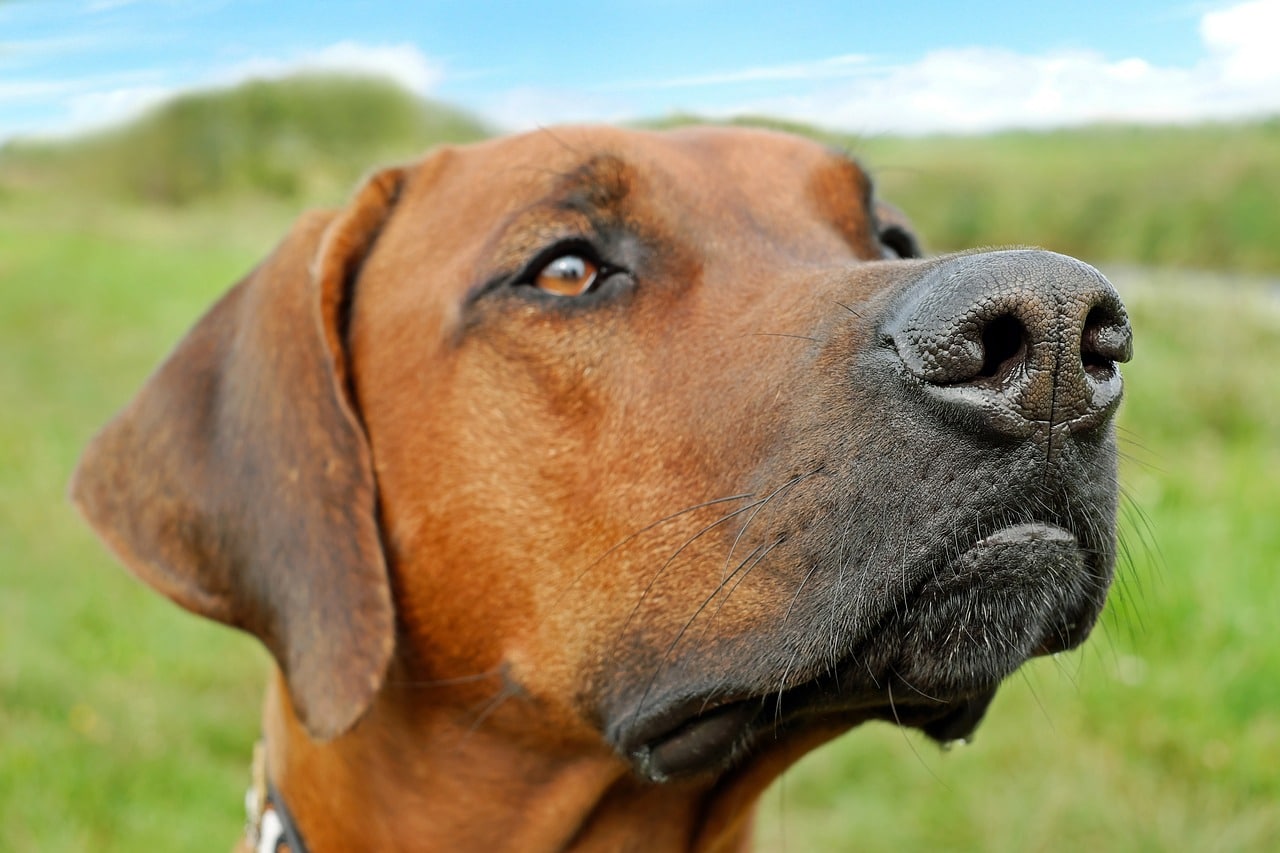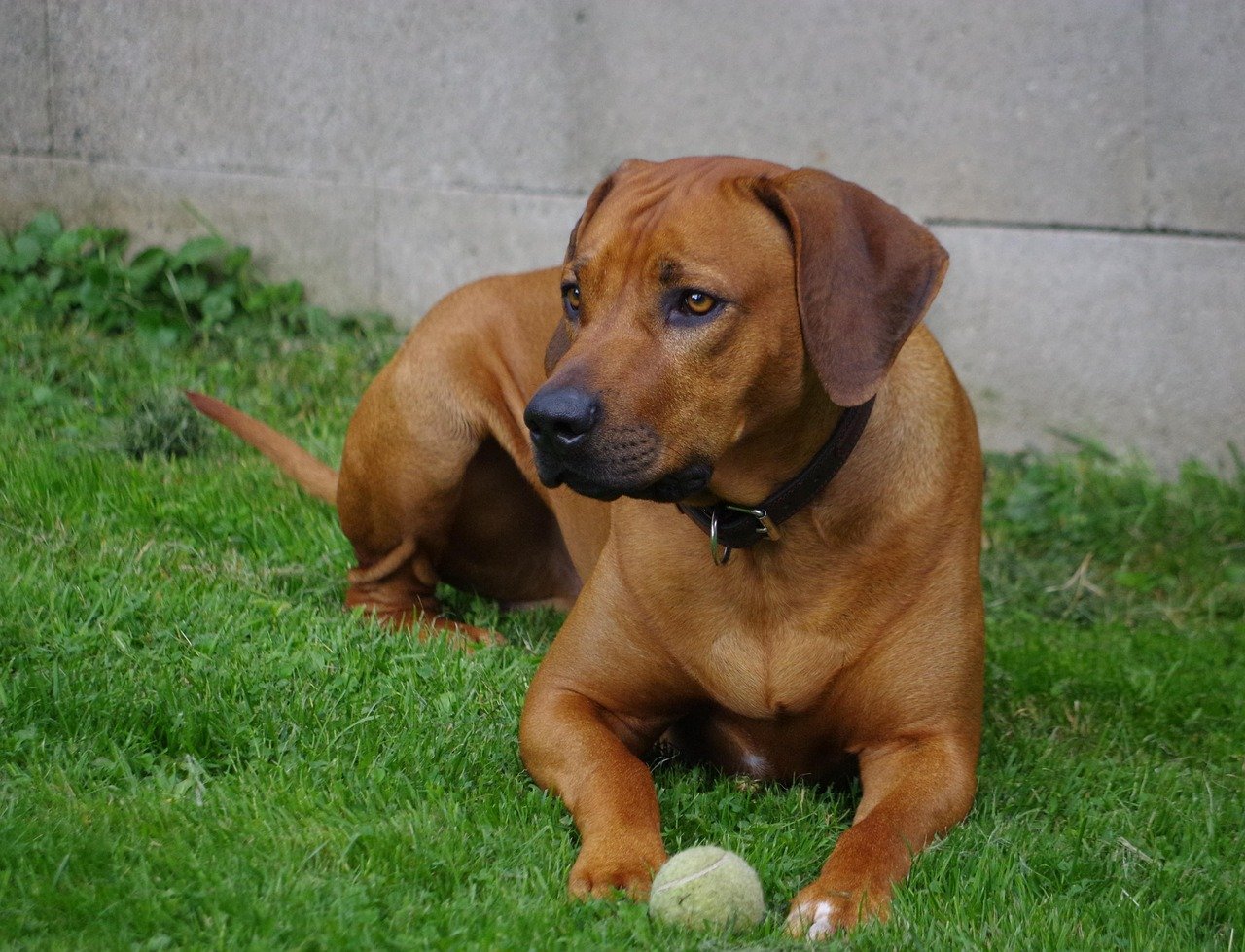Dignified. Devoted. Intelligent. The Rhodesian Ridgeback has all the markings of a true watchdog. Originally bred in South Africa to hunt lions (yes, you read that correctly!), Ridgebacks are strong and fearless companions. Plus, they’re as affectionate as they are athletic.
This breed’s gentle, even-tempered nature makes them a winner with families—active families, that is. A Rhodesian Ridgeback puppy has energy to spare, and he needs a home that will provide plenty of outlets to blow off steam. A Ridgeback will be at his happiest while enjoying any heart-pumping activity with his owner: swimming, tracking, hunting, agility course, and hiking are all favorites of this striking canine.
If you’re considering adopting a Rhodesian Ridgeback puppy, research is essential. And we’re here to help! Read on to see if you have what it takes to keep this active hound healthy and happy.
Rhodesian Ridgeback facts
A Rhodesian Ridgeback puppy could be a wonderful addition to your family—as long as you know what you’re in for. These dogs have a lot of great qualities, but they aren’t exactly low-maintenance. Read our breed profile to determine if this breed might be a good match for your household.
| Size | Large. Rhodesian Ridgeback males will reach a height of 25-27 inches, while females will usually be around 24-26 inches tall. Typically, males will weigh about 85 pounds, and females will weigh 70 pounds. |
| Breed Characteristics | Ridgebacks have a muscular and athletic body, built for endurance. This breed’s most prominent feature is their trademark “ridge” of backward-growing hair down their backs.
Their short and glossy coat comes in varied shades of wheaten, and their noses can be either black or brown. They have brightly expressive eyes that are sure to win anyone over. |
| Temperament | Bred to hunt large game, the Rhodesian Ridgeback is fearless and independent. If you have a family, you’ll be happy to hear he’s an alert and responsive watchdog who’s extremely protective of his family.
Ridgebacks are also affectionate and even-tempered canines. Although reserved with strangers, they generally get along with other dogs, cats, and children. Owners will need a majorly patient attitude during training: Ridgebacks are responsive pups, but they can be strong-willed at times. |
| Grooming and Health Needs | Grooming needs are minimal. Weekly brushing is enough to maintain a Ridgeback’s glossy coat. This breed does shed a fair amount, but they’re clean dogs with little odor.
Generally, Rhodesian Ridgebacks are a healthy breed, but they can develop hip dysplasia, heart problems, hypothyroidism, and bloat (which can be sudden and fatal.) |
| Training | This breed is alert and intelligent, making them highly trainable. They can, however, be headstrong so firm training from puppyhood is critical.
Since these dogs like to test boundaries, it’s imperative to teach them who’s in charge. |
| Energy Level | Ridgebacks are athletic and energetic, and they need daily exercise to stay happy and healthy. They excel at tracking, agility, and swimming—activities they love to share with their owners. |
| Life Expectancy | Average lifespan is 10 years. |
Who is the best human for a Ridgeback?
Dreaming of bringing home a Ridgeback puppy of your own? These dogs are clever and affectionate, but they’re not for everyone.
For one thing, Rhodesian Ridgebacks require an active household, one that will provide plenty of physical outlets for them to burn off steam. These dogs love running, tracking, and swimming, and they’re especially active during the first few years of puppyhood. So if you’re an outdoor enthusiast or a hunter, a Ridgeback can make a terrific companion.
One caveat: walking a Rhodesian Ridgeback puppy off-leash is simply out of the question. They have a strong prey drive and an uncontrollable urge to chase anything in sight. Plus, a Ridgeback’s fearlessness makes him reluctant to back down from a tense encounter with another dog. A large, fenced-in yard is ideal to keep him (and other animals) safe.
Rhodesian Ridgebacks are good with kids, but be careful with very young children. These hounds are strong and could easily knock down an unsuspecting toddler. They’re also friendly around other household pets, including cats. Watch out for unfamiliar cats, though—a Ridgeback’s hunting instinct will kick in if one crosses his path.
If you’re looking for a watchdog, the super-protective Ridgeback is something of a pro. They’ll alert their owner of anything unusual, but they’re not obnoxious barkers.
If you’re the sporty type, and you have the time and energy needed to devote to his training, then a Rhodesian Ridgeback could be the perfect dog for you. It also helps if you’re an experienced dog owner since this breed isn’t always the easiest to live with.
Getting a Rhodesian Ridgeback
The decision to adopt or to work with a breeder for your new Rhodesian Ridgeback puppy is a personal choice that requires research.
Thankfully, there are many resources out there to help you find a rescue or a breeder who offers healthy, ethically-sourced Rhodesian Ridgeback puppies.
Adopting a Rhodesian puppy
It may come as a surprise, but adopting a Rhodesian Ridgeback puppy is possible. According to the AKC, most shelters report that the majority of their rescue dogs come from individual owner surrender due to a lifestyle change or an incompatibility with the dog. What this means for you: there may be many adoptable dogs and puppies out there who are looking for a new forever home.
The main difference between a breeder and a rescue is that a rescue may not always have young puppies to choose from. The benefit, however, is that most are mandated to only adopt out dogs that have been microchipped and spayed/neutered. This means you may end up with a dog who’s already been housebroken and doesn’t need these common medical procedures. You may also find a Rhodesian Ridgeback mix that has all the traits you want from the breed, but with a little extra thrown in.
Finding a Rhodesian Ridgeback rescue can be as simple as searching the internet. Start by checking out The Rhodesian Ridgeback Club of the United States. You’ll find loads of useful information with links to several Ridgeback rescue sites.
Finding a breeder
The first step is to do your research. Sadly, there are many puppy mills posing as reputable breeders along with many online scams. Be aware, and reach out to different online forums for conversations about getting your future furry family member.
Be sure to ask questions, and make arrangements to meet the parent dogs or mother. In the end, you must follow your gut. If something seems wrong at a breeder you visit, or the Rhodesian Ridgeback puppy seems too good to be true, there’s probably something fishy going on.
The AKC also offers resources for finding a breeder, with fairly strict guidelines on who they let participate.
Knowing what you’re in for when you get a Rhodesian Ridgeback puppy is an important step in being a responsible pet owner. Whether you find an ethical breeder or are planning to adopt, prepare yourself for an affectionate and friendly addition to your household.
Rhodesian Ridgeback puppy resources
After you find the right Rhodesian Ridgeback puppy, it’s time to prepare your home! Here are a few resources to get you started.









